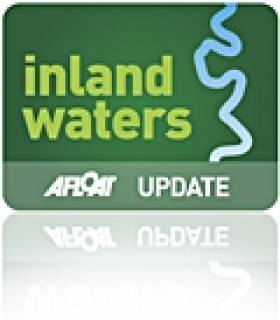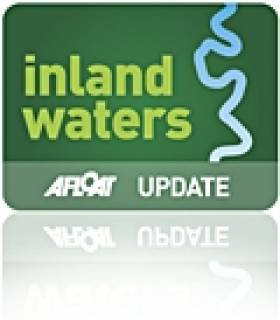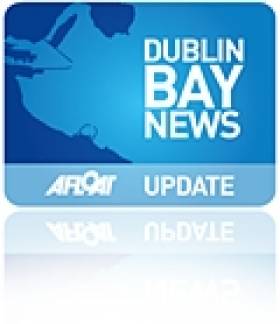Displaying items by tag: Barge
A barge owned by Bibby Marine Ltd has arrived on Britain’s Dorset coast to provide floating accommodation for asylum seekers.
As Sky News reports, the barge will be docked for at least 18 months and has a capacity for 506 people.
Only single adult men between the ages of 18 and 65 will be housed on the barge, which has become “the new epicentre” of Britain’s migrant debate, amid the government’s failed scheme to transfer migrants to Rwanda and its controversial Illegal Migration Bill which has been criticised by the UN.
The British government says the barge will save millions of pounds on hotel rooms, but local residents and politicians have expressed concerns about division, safety and local services, Sky News reports.
Allocating the cabins to single men will avoid the need for infrastructure like schools, maternity and childcare services, it says.
Barge residents are not detained, but they will have to sign a register each time and go through port security.
The British Home Office has paid for bus services to take barge residents to nearby Weymouth for access to local services.
The British Government cites the Netherlands as another European country using "floating accommodation" to house migrants.
Read more on a Sky News report here
County Wexford based company Marine Specialists Ltd completed mobilising their new 26-metre barge Cliodna in Bangor Harbour on Belfast Lough on Monday, February 7th.
Over the coming weeks, it will be inspected by the Maritime Coastguard Agency and prepared for sea. Cliodna will become a familiar sight off Ballywalter where she will be used to dig a trench through bedrock to accommodate the new 550m wastewater outfall.
Ballywalter lies on the North Down coast about eight miles east of Donaghadee. It has an amenity harbour with a few small fishing boats kept alongside the quay.
 Marine Specialists Ltd have completed mobilising their new 26-metre barge Cliodna for works on Belfast Lough
Marine Specialists Ltd have completed mobilising their new 26-metre barge Cliodna for works on Belfast Lough
The Ards North Wastewater Improvement Project represents an £18m investment by NI Water to upgrade the existing wastewater collection and treatment systems serving a large part of the Ards Peninsula. Wastewater will be treated to strict environmental standards at the new state-of-the-art wastewater treatment works being constructed off the Ganaway Road in the village and this will ensure excellent bathing water quality at local beaches.
For further information on the project click here
Rent & Navigate Your Own Canal Barge Through Dublin City
#dublinbarge – After one hour personal instruction on how to drive, moor and navigate a barge through a lock, you can drive your very own barge in Dublin city centre.
The barge 'Scéal Eile' is a new and exciting form of accommodation offered at Grand Canal Dock, Dublin 2.
Dublin Barge Hire is Dublin city centre's first self-catering cruising barge.
Not only is this an exclusive and unique place to stay, the barge is a form of transport as well.
Guests will have access to the secure and serviced Marina in Grand canal Dock and from here you can navigate through seven locks up to Portobello.
It is a four hour round trip along an historic stretch of canal, originally opened in 1796.
The barge has a capacity of 4 adults and 2 children. For two nights based on two people sharing the package is priced at €300.
'Scéal Eile', a 50 x 10 foot (15 x 3.1 m) barge was built in 2006 to a high specification according to its owners. They say the barge has a warm inviting interior and a comfortable living space that makes this self-catering barge an environment for a holiday break.
It contains a multi-fuel stove with a back boiler which makes a stay on the barge during winter a cosy experience.
More on www.dublinbargehire.com
60-foot Barge Sinks in Killaloe
Killaloe Coast Guard Unit was tasked to a 60' barge that was sinking at its mooring on Lough Derg on the inland waterways this afternoon. The Killaloe Coast Guard Unit dispatched two vehicles with crew and salvage pubs by road and the rescue boat "Dalton" was sent to place anti-pollution booms.
According to the Coastguard after many hours it was obvious that even with four pumps and a slurry tank the barge had sat on the bottom listing to starboard. A second slurry tank and the fire and rescue service from Nenagh also assisted.
Jack up Barge Arrives on Dublin Bay
These jack-up barges will be used for the drilling of test boreholes at various locations within Dublin Bay and its approaches. Initially, the "Aran 250" will be used and it is expected that under normal conditions it will operate on a 24 hour / 7 day week basis.
At all times when the jack-up barge is on location it will transmit an "AIS" signal. By night the barge will display white lights (operated in unison) flashing Morse code (U) every 15 seconds. These will be located at each corner. The barge itself will be lit by operational deck lights.
When the jack-up barge is operational it will have the standby boat "James Joyce" with two people on board in attendance. They will tie-up to a buoy moored approximately 300 metres away from the barge. The small tug "Trojan" will operate as a supply boat and will be based at the Poolbeg Marina. The Trojan will also be used for towing the barge from one location to the next.
The test borehole drilling positions (WGS 84) are as follows :-
M06 Lat 53˚ 19' 53.46'' N Long 006˚ 09' 39.08'' W M15 Lat 53˚ 19' 11.35'' N Long 006˚ 06' 58.16'' W
M07 Lat 53˚ 19' 11.27'' N Long 006˚ 08' 21.42'' W M16 Lat 53˚ 18' 32.75'' N Long 006˚ 06' 33.07'' W
M08 Lat 53˚ 19' 50.64'' N Long 006˚ 06' 21.73'' W M17 Lat 53˚ 20' 23.37'' N Long 006˚ 05' 16.93'' W
M09 Lat 53˚ 18' 38.17'' N Long 006˚ 05' 45.02'' W M18 Lat 53˚ 19' 32.50'' N Long 006˚ 05' 19.69'' W
M10 Lat 53˚ 17' 44.38'' N Long 006˚ 03' 41.33'' W M19 Lat 53˚ 18' 16.91'' N Long 006˚ 05' 02.71'' W
M11 Lat 53˚ 19' 42.31'' N Long 006˚ 03' 22.31'' W M20 Lat 53˚ 17' 51.94'' N Long 006˚ 04' 43.04'' W
M12 Lat 53˚ 19' 00.03'' N Long 006˚ 00' 25.74'' W M21 Lat 53˚ 18' 56.68'' N Long 006˚ 04' 07.12'' W
M13 Lat 53˚ 19' 51.50'' N Long 006˚ 10' 13.42'' W M22 Lat 53˚ 19' 09.75'' N Long 006˚ 02' 37.54'' W
M14 Lat 53˚ 19' 59.29'' N Long 006˚ 07' 53.39'' W M23 Lat 53˚ 18' 48.98'' N Long 005˚ 59' 07.97'' W
Each location will take approximately 1 week to drill. Drilling will not follow in sequence listed above. VTS will keep all shipping advised with regards to the location at which the barge is operating.
More detail is contained in a marine notice issued by Dublin Port Company's
Harbour Master, Captain David T. Dignam HERE
































































